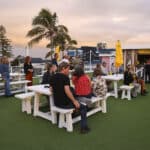EDUCATION
The Science Of Feeling Good – Southern Cross University Delivers A New Era For Naturopathic Medicine
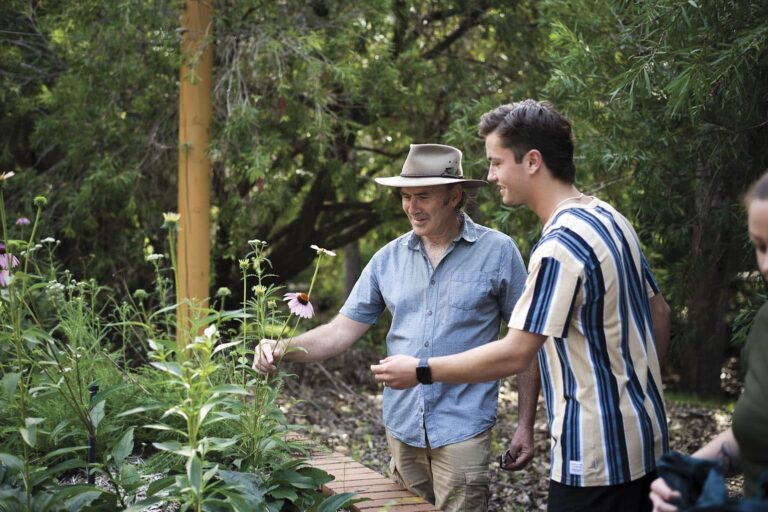
WORDS: Jessica Nelson and Karlyn Gibson PHOTOGRAPHY Supplied
Nestled in the picturesque hills of Northern NSW, the National Centre for Naturopathic Medicine (NCNM) at Southern Cross University is brimming with enterprise. Clinical trials into natural treatments for debilitating conditions are underway, as international experts pioneer new integrated medical knowledge, deliver premier academic courses and advocate for holistic, patient-centric healthcare.
Professor Jon Wardle walks through the lush, sub-tropical grounds of Southern Cross University’s Northern Rivers campus. He stops to inspect the flourishing plants and pauses alongside Australia’s only certified medicinal herb garden.
He leans over to inspect an Echinacea plant – a purple, daisy-like flower well-known for its immune-modulating activity. He notices other plants in bloom, such as the innocuous elderberry shrub.
“Elderberry is showing promising results for its antiviral potential. We are working with international bodies to review the plant’s role in a comprehensive suite of natural therapies,” explains Professor Wardle, NCNM Foundation Director and Maurice Blackmore Chair of Naturopathic Medicine.
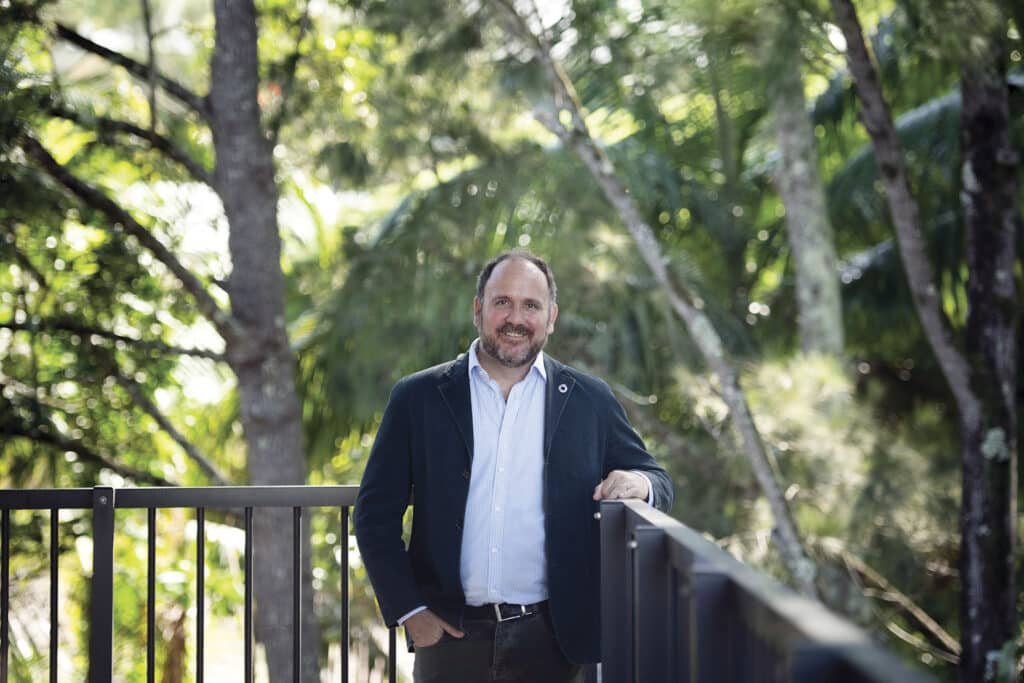
National Centre for Naturopathic Medicine. John Wardle
Southern Cross University was the first Australian university to offer degrees in naturopathy and integrative medicine, and is one of just two Australian universities in the US-based Academic Consortium of Integrative Medicine and Health, alongside institutions like Harvard and Stanford University. Since the NCNM was established in 2020 – following a historic $10 million donation from the Blackmore Foundation – it has become synonymous with internationally recognised research in integrative medicine.
“The philosophy of naturopathic medicine is about supporting the body’s own ability to heal itself, and empowering patients to be an active part of their healthcare journey,” said Professor Wardle. “There is so much we can do to improve healthcare beyond our traditional approaches. It might be new plant-based or natural therapies, better use of Indigenous and traditional knowledge, or creating healthcare teams that look at a person’s wellbeing from multiple angles. We are also seeing great results in group care models for better healthcare outcomes.”
Southern Cross University is the only public university in Australia that qualifies graduates as clinical naturopaths who can practise in specialised and integrative settings in four years. The NCNM’s team of international experts is pioneering new integrated medical knowledge, while delivering world-class Bachelor and postgraduate courses in Naturopathic, Lifestyle and Integrative Medicine.
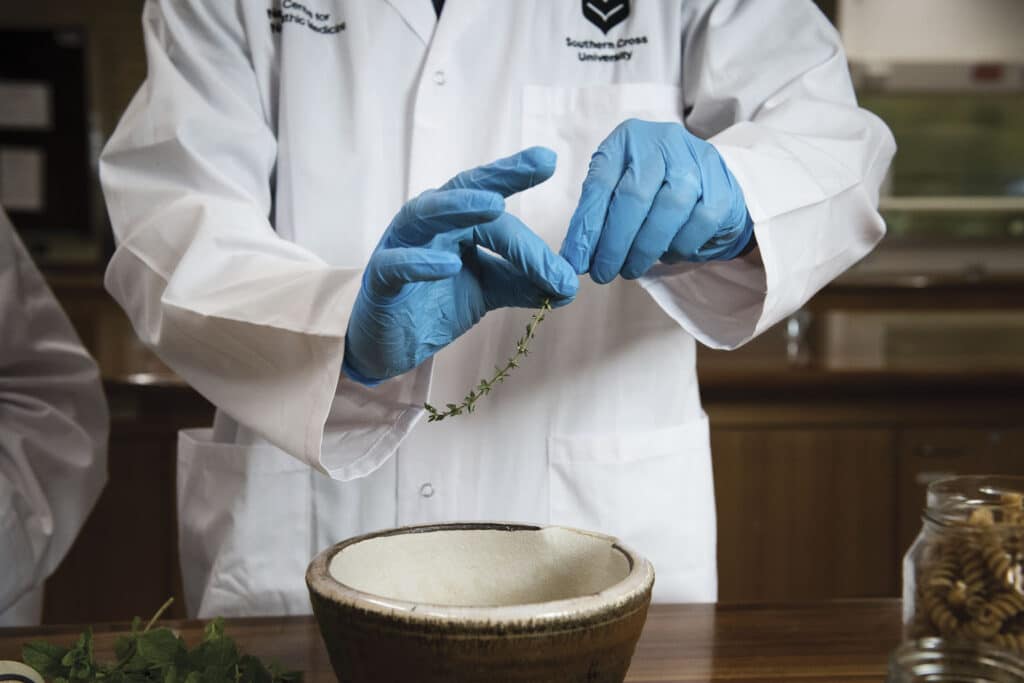
National Centre for Naturopathic Medicine Students Cristina Arcila and Cameron Lloyd in the Chemistry lab.
Professor Wardle’s own area of clinical focus has long centred around endometriosis.
Treating endometriosis without surgery
For the estimated one in nine women in Australia who struggle with endometriosis, there is often an accompanying story of having their symptoms downplayed, or a delayed diagnosis from medical professionals. Because of this, many women seek out the care of a naturopath to help manage endometriosis – a disease where tissue similar to the lining of the womb grows outside it in other parts of the body, causing life-disrupting pelvic pain.
One of the Centre’s PhD candidates Sophia Gerontakos, who is researching under the supervision of Professor Wardle, has developed a new naturopathic group care model for women with endometriosis.
“We’re still analysing the final results, but from initial patient reports there appears to be a therapeutic aspect to the empowering nature of being part of these groups, as well as the educative nature of the visits which helped women better self-manage their endometriosis using the therapeutic treatments. This is promising and we look forward to publishing soon,” she said.
Professor Wardle said while endometriosis has largely been overlooked or neglected by clinical communities, it was now a naturopathic research agenda for the NCNM.
“This includes examining the potential role of cannabis in treating pelvic pain, our collaborative project with Western Sydney University and Endometriosis Australia about the positive health impacts of more flexible working arrangements to help women manage their endometriosis, and our research project with University of Technology Sydney led by our naturopathic course coordinator Rebecca Redmond which is looking at historical and traditional interpretations of symptoms that are suggestive of endometriosis, to see if there might be something we can learn from those traditional medicines,” Professor Wardle said.

Naturopathic Medicine Ð Discipline Video Shoot
The Health Lodge Byron Bay
Parkinson’s, cancer, UTIs: how patient experiences inform research
Dr Andrea Bugarcic is leading multiple pre-clinical trials at the NCNM. Her work on using traditional knowledge to inform laboratory research is informing the US National Institutes of Health (NIH) recommendations for natural products research.
“I work in the pre-clinical space, listening to patient experiences and figuring out how we can test traditional knowledge at a cellular level to help fight disease,” she said.
“For example, we are working with Parkinson’s disease patients to hear from them what works in terms of their health. One of our projects is investigating their experiences with using cannabis and CBD oil and how that either helps or hinders their health – based on what they tell us we then scientific questions and design experiments to understand their experiences.”
Dr Bugarcic is also spearheading a project looking at traditional knowledge in treating cancer, particularly lung and colorectal cancer, and bacterial infections.
“This is really interesting work – we are looking into the suite of traditional evidence and examining their impact on human health. We have a few publications coming out soon that collected traditional uses of herbal medicines and we will use this knowledge to identify novel herbs and compounds for treating bacterial infections (specifically biofilms) and understanding any anti-cancer properties.”
Dr Bugarcic’s work with clinicians who treat various infections – particularly urinary tract infections (UTIs) – is so far proving to be much more straightforward in highlighting specific herbal treatments that work, with a publication imminent.
“We want to come up with a cheap, natural, accessible treatment for people who suffer with uncomfortable or debilitating UTIs,” she said.
Trouble sleeping? Menopause struggles? CBD oil could be the answer
Dr Bugarcic’s expertise lies in scoping and determining what studies should be pursued and she works closely with Clinical Research Fellow Dr Janet Schloss.
Dr Schloss’ work includes Australia’s largest clinical trial on medicinal cannabis oil to establish evidence for its use to treat sleeping problems; a drug-absorption study looking at how cannabidiol, commonly known as CBD, is absorbed and excreted from the body; and a novel herbal formula to relieve anxiety during menopause.
“We are currently recruiting on the Gold Coast for a study into managing fibromyalgia pain using cannabis; and have other studies underway such as testing a herbal supplement to aid weight loss; a safety trial for traditional Chinese medicine herbs for treating dizziness; a herbal formula for recurrent UTIs and cystitis; investigating olive leaf extract as a treatment option for people living with type-2 diabetes; and a study to ascertain whether the consumption of kefir, a fermented milk drink, can influence the gut microbiome,” Dr Schloss said.
“We have a study coming up in a couple of months on the impact of ginger on the bone marrow disorder MDS (myelodysplastic syndromes) to test whether it can stop cancer in its tracks, and are also hoping to look into the impact of CBD on the endocannabinoid (sex hormone) system and how it relates to postpartum depression.”
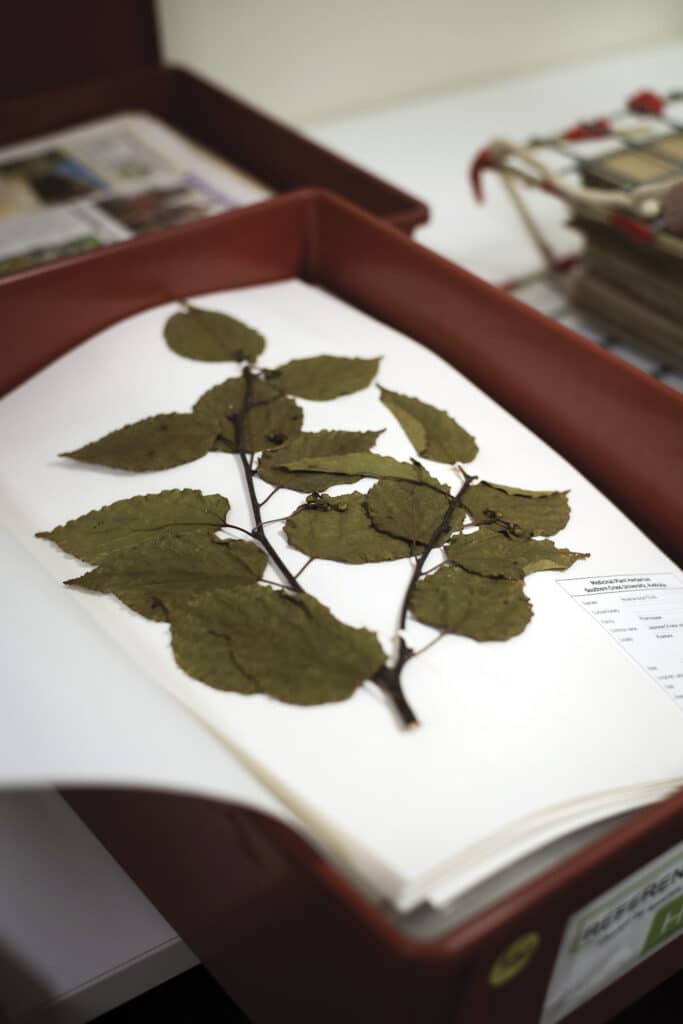
National Centre for Naturopathic Medicine. Herbarium with Peter Mouatt and students Cristina Arcila and Cameron Lloyd
The next generation of healthcare professionals
The NCNM’s Deputy Director of Education Associate Professor Matthew Leach said there is a growing body of evidence to support Integrative Medicine in mainstream healthcare settings.
“Southern Cross is trailblazing the development of new shared models of healthcare. We know team-based care is best practice care – this is where every patient has a team around them to support their health and wellbeing – it’s a whole-person approach,” he said.
“Every Australian should have a naturopath who works collaboratively with their GP and other relevant health professionals, including nurses, osteopaths, psychologists and occupational therapists, to ensure their health and wellbeing needs are met.”
“We know that around one-half of Australians live with a chronic disease such as cardiovascular disease, diabetes and obesity, and about 80 per cent of these chronic illnesses are influenced by lifestyle factors. Many of these factors can be addressed early through naturopathic care and lifestyle medicine, which in turn can drastically improve quality of life and optimise health across the population.”
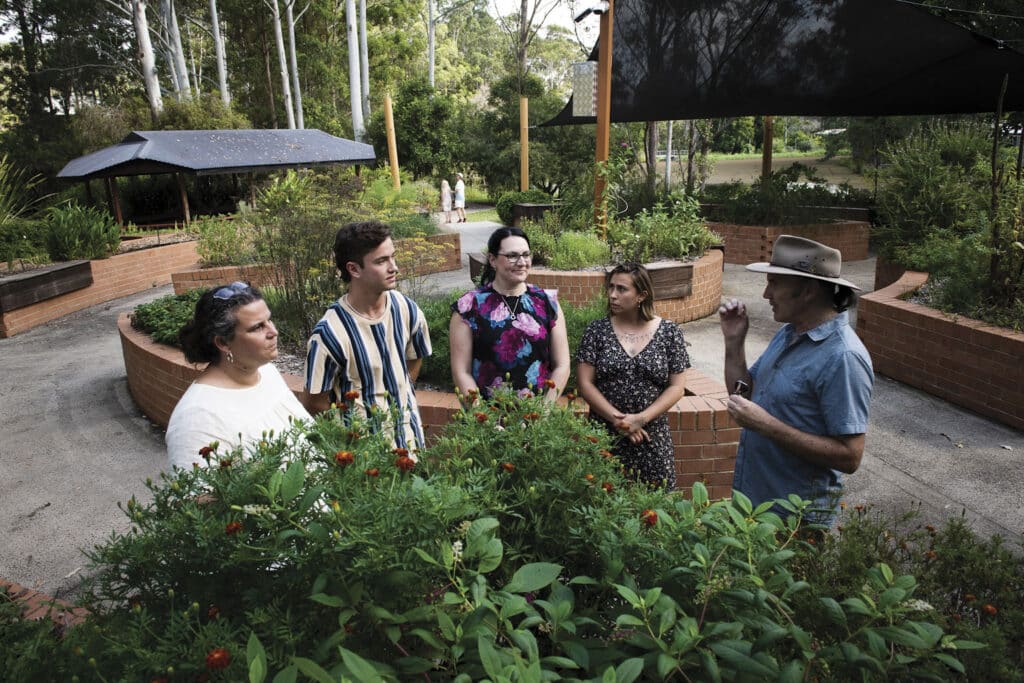
National Centre for Naturopathic Medicine. Herb garden with Peter Mouatt, Andrea Bugarcic, Rebecca Redmond and students Cristina Arcila and Cameron Lloyd.
Faculty of Health Executive Dean at Southern Cross University, Professor Julie Jomeen, said the NCNM was changing the global conversation about health, through advocacy for patients and for the naturopathic profession, while playing a leading role in the natural products sector.
“The complementary medicine sector is a $5.6 billion industry in Australia and one of Australia’s most successful export industries, and is poised to become a booming industry on the Gold Coast and in the Northern Rivers. Southern Cross University offers unparalleled infrastructure to support naturopathic training and research, including one of only two TGA-certified natural product analytical laboratories in Australia,” Professor Jomeen said.
“The complementary medicine sector is one of Australia’s fastest growing health sectors, and our Gold Coast and Northern Rivers campuses are acknowledged as a hub for that expertise. There’s no better place in the world to train the next generation of healthcare professionals.”
Information about courses at the National Centre for Naturopathic Medicine can be found at www.scu.edu.au/ncnm







